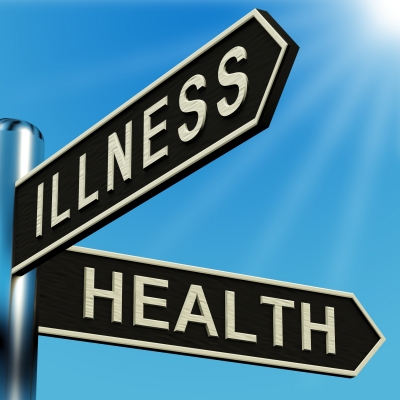It was a usual rainy day and I was having my evening tea, our family physician came by with a san face a slump walk. I was concerned, because he was the senior-most official at the district hospital. On enquiring I was hit with great grief and shock which has lead me to write this post.
A 8 year old boy had come to the hospital with is parents, in the morning that day with complaints of stomach pain and black stools. As can be expected of some irresponsible doctors, the duty doctor had misdiagnosed the symptoms for normal diarhoea and sent the family advising them not to worry.
On the way back the tired boy wanted a drink and had asked for a cola drink. When given by the parents, the boy had two gulps and then began screaming and shouting with pain.
The parents did not know what to do and by the time they came to notice that the boy has pain in his stomach the boy collapsed and died on the spot.
The problem that had not been diagnosed was Duodenal Ulcer.
The Aerated Soft Drink which is acidic speeded the ulcer making the boy suffer immediate death.
Duodenal Ulcer, though is easily curable is very dangerous and remains dormant for a long time till a large part of the duodenum is affected and tell tale signs of the disease is expressed outside.
Thus I thought that knowledge of this silent killer is a must to mothers and here I have presented them.
Duodenal Ulcer
A duodenal ulcer is usually caused by an infection with a bacterium called Helicobacter pylori (H pylori).It is a type of peptic ulcer that occurs in duodenum which result in abdominal pain, possible bleeding, and other gastrointestinal symptoms.
Signs and symptoms of duodenal ulcer:
In general duodenal ulcer causes inflammation and damage to the stomach lining which causes following synptoms and may be constant or sporadic.
- Heartburn is the first and most noticeable symptoms of this ulcer.
- The symptoms of a duodenal ulcer are felt mostly before a meal. This happens when excess acid produced by hunger stimulation, is passed into the duodenum.
- Feeling of fullness
- Loss of appetite
- Nausea with or without vomiting.
- Another symptom of a duodenal ulcer is that people are woken from their sleep during the night by sharp ulcer pains.
- Weight loss.
- Serious symptoms includes
- Blood stool.
- Severe abdominal pain
- Blood vomiting.
- Perforation. This is where the ulcer goes right through the wall of the duodenum. Food and acid in the duodenum then leak into the abdominal cavity and causes severe pain.
Causes of duodenal ulcer:
Stomach normally produces acid to help with the digestion of food and to kill bacteria. This acid is corrosive so some cells on the inside lining of the stomach and duodenum produce a natural mucous barrier which protects the lining of the stomach and duodenum.
There is normally a balance between the amount of acid that you make and the mucus defense barrier. An ulcer may develop if there is an alteration in this balance, allowing the acid to damage the lining of the stomach or duodenum.
Risk factors:
- Use of tobacco
- Drinking aerated soft drinks
- Drug abuse
- Having exposed to radiation therapy
- Regular usage of anti inflammatory drugs NASAIDs,Ibofruvin like advil.mortin.
- Stress.
Diagnosis:
- Endoscopy.
- A separate test for H.Pylori is done if the doctor suspects of duodenal ulcer.
Treatment:
- Antibiotic therapy: Generally 2 antibiotics are given for 14 days. Examples are
- Amoxicillin
- Amoxicilli
- Clarithromycin (Biaxin)
- Metronidazole (Flagyl)
- Tetracycline
- Medications like proton pump inhibitors are a class of medicines that work on the cells that line the stomach, reducing the production of acid and histamine H2 receptor antagonists that decreases stomach acid are used.
- Surgery is only needed if a complication of a duodenal ulcer develops such as severe bleeding or a perforation.
- For patients whose duodenal ulcers heal after severe hemorrhage, long-term maintenance therapy with ranitidine is safe and reduces the risk of recurrent bleeding.
What happens if not treated?
The infected person is having 2 to 6 time?s greater risk of having gastric cancer which results in complications. The World Health Organization reports that H. pylori is also present in 50% of all new gastric cancer cases.
Preventive measures:
- Stop using NASAIDs.
- Stop smoking
- Stop drinking
- Personal hygiene.


